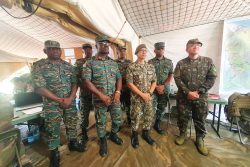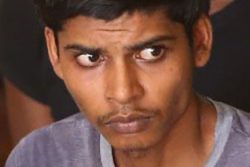Last Thursday, two elections petitions, which were filed after the elections results were declared on August 2, were heard before the Chief Justice. The elections petitions were fixed for what is called a case management conference. This is a routine procedure in civil matters in the High Court. It is a preparatory stage to resolve preliminary issues so as to settle all preliminary matters prior to the trial. Case management conferences can be routine or complicated, depending on the nature of the case. Election matters, or at least the second matter filed, fall into this second category. There were many issues which arose for consideration. Some were raised by lawyers and some by the Chief Justice. These issues are dealt with below.
The first case filed, No. 88 of 2020, is the less complex in that it has no factual issues to be resolved. Nevertheless, it is challenging for all concerned. The legal issues raised may already be familiar to the public because they were canvassed in the cases which have been heard by the courts during the elections period and extensively reported. Readers may recall that it was Order 60 which ordered the votes cast in the elections to be recounted. Readers may further recall that Order 60 was made under the authority of section 22 of the Election Laws (Amendment) Act.
It is now alleged in the case that section 22 of the Election Laws (Amendment) Act is unconstitutional and, therefore, Order 60 was null and void. The alleged consequence is that the results of the elections which were declared on August 2, are unlawful and the results should be declare to be void. In this case, there are only undisputed facts, and it would be a straight issue of law, namely, the constitutionality of section 22. The issues relating to section 22 and Order. No ruling was made because the court ruled that the issues can only be litigated by elections petition after the elections. Hence the petition at this time.
In the second matter, No. 99 of 2020, there are 91 particulars and grounds on which the validity of the elections is challenged and many of those grounds have sub-grounds. They range for the registration exercise, the validity of the electoral list, the counting and the recounting of the votes, documentation and its absence and more. Much of these would also be familiar to the public as they were publicized by the media during the period leading up to the elections, the recounting, and the declaration of the results on August 2. Of particular interest are the allegations that: the electoral list lacked credibility; the Chief Election Officer’s (CEO) report was held in abeyance; Order 60 was inconsistent with the Representation Act; discrepancies were observed in the recount; the CEO said on June 13 was not a true reflection of the result because voters exceeded electors, and impersonation. There were countless other details and allegations against the Elections Commission, which are too numerous to enumerate. Among the many orders sought by the petitioners are that the elections be declared to be null and void, that ‘Irfaan Ali’s assumption of office of president be declared null and void and that new elections be held.
In election petition cases, the civil procedure rules apply. But there are additional rules which are peculiar to election petitions which are provided for in the National Assembly (Validity of Elections) Act. The law requires strict adherence to these rules and if they are not observed the election petition can be deemed a nullity. For example, Mr. Douglas Mendes S.C., who, represents Bharrat Jagdeo claimed that it might well be that Mr. Jagdeo was not served with the petition within the five days and he sought an opportunity to investigate. If this is the case the petitions would be nullities. The Chief Justice herself pointed out that where a respondent is not opposing the orders sought in a petition that person cannot be a party. The issue of David Granger, former president, being lawfully entitled to be a party to both petitions will have to be considered by lawyers for Mr. Granger.
Other important issues were raised by the Chief Justice. These include particulars and discovery. Where assertions are made in an affidavit or pleading, and the other side considers the assertions to be vague or incomplete, particulars can be sought by way of letter. Where the request is disputed, the Judge would be required to make a ruling. Some judges require a written application, others do not and rule on the issue during case management. The production of documents is also a crucial and important matter. In election matters, all sides are entitled to election material. These have to be requested from the CEO who is a statutory party and, if not produced, the Judge can order the production. For example, the Statements of Poll and Statements of Recount would be vital documents.
With all these issues to be resolved and the involved legal and factual issues in the two cases, if they start early next year, they might take the entire year to conclude.
This column is reproduced, with permission, from Ralph Ramkarran’s blog: www.conversationtree.gy










